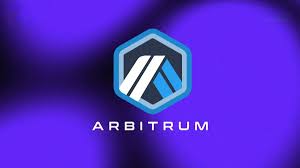The Hook: A New Era for Ethereum Scaling
Imagine if anyone could help secure a blockchain network without needing permission from a central authority. That’s exactly what Arbitrum just did with its new BoLD protocol. This move not only strengthens security but also makes the network more decentralized, a key goal for crypto enthusiasts and investors. But why does this matter? And how does it work? Let’s break it down.
The Problem: Who Controls Validation?
Arbitrum is a Layer-2 scaling solution for Ethereum, meaning it helps process transactions more efficiently by handling them off-chain before submitting summaries to the Ethereum mainnet. This method, called an optimistic rollup, assumes transactions are valid unless challenged. The problem? The system needed trusted validators to check for fraud, and until now, only pre-approved validators could participate. This limited decentralization and created security concerns.
- Key Word: Optimistic Rollup – A method that processes transactions off-chain and assumes they are valid unless proven otherwise.
- Key Word: Validators – The entities that check transactions for fraud. Previously, only a select few could do this in Arbitrum.
The Solution: Enter BoLD (Bounded Liquidity Delay)
BoLD is a new dispute resolution system that allows anyone to challenge fraudulent transactions. This removes the need for a permissioned validator system, making the network more open and decentralized.
How It Works: The 3-Step Revolution
- Anyone Can Validate – Instead of a small group of approved validators, now anyone can check transactions and challenge suspicious ones.
- Time-Bound Disputes – If a dispute arises, it must be resolved within 12 days, preventing bad actors from endlessly delaying withdrawals or state confirmations.
- Stronger Protection – Even if the network is under attack, one honest validator can protect it, ensuring state confirmations happen on time, no matter what.
- Key Word: Permissionless Validation – A system where anyone can participate in securing the network.
- Key Word: Time-Bound Disputes – A set time limit (12 days) for resolving disputes, preventing endless delays.
Why This Is a Big Deal
- More Decentralization – No more reliance on a handful of validators. The power is now with the community.
- Stronger Security – One honest validator is enough to prevent network manipulation.
- Faster and More Reliable Transactions – No more indefinite delays caused by bad actors.
Final Takeaway: Crypto’s Future Just Got Stronger
Arbitrum’s BoLD protocol is a major step towards true decentralization in Layer-2 scaling. By making validation open to everyone and ensuring timely dispute resolution, it strengthens both security and trust in the ecosystem. If you’re into crypto, understanding how these advancements shape blockchain technology will help you stay ahead in the game—whether you’re a trader, developer, or just a crypto enthusiast.
This is more than just a technical upgrade—it’s a revolution in how Ethereum scaling works. Keep your eyes on Arbitrum and the BoLD protocol. This could be the future of decentralized security.



